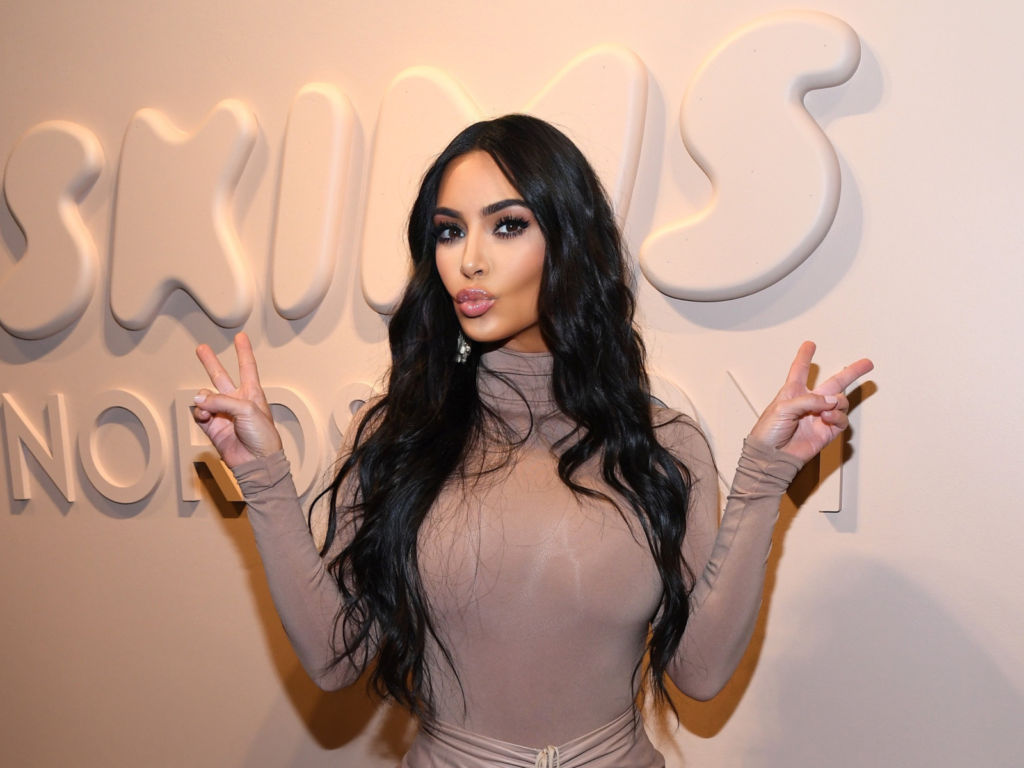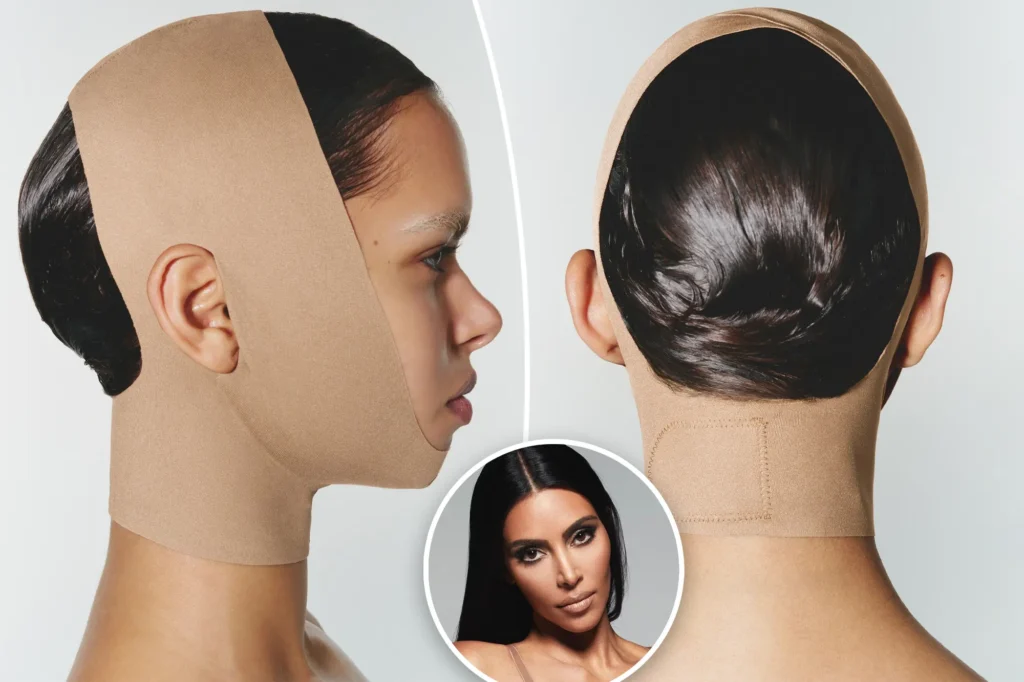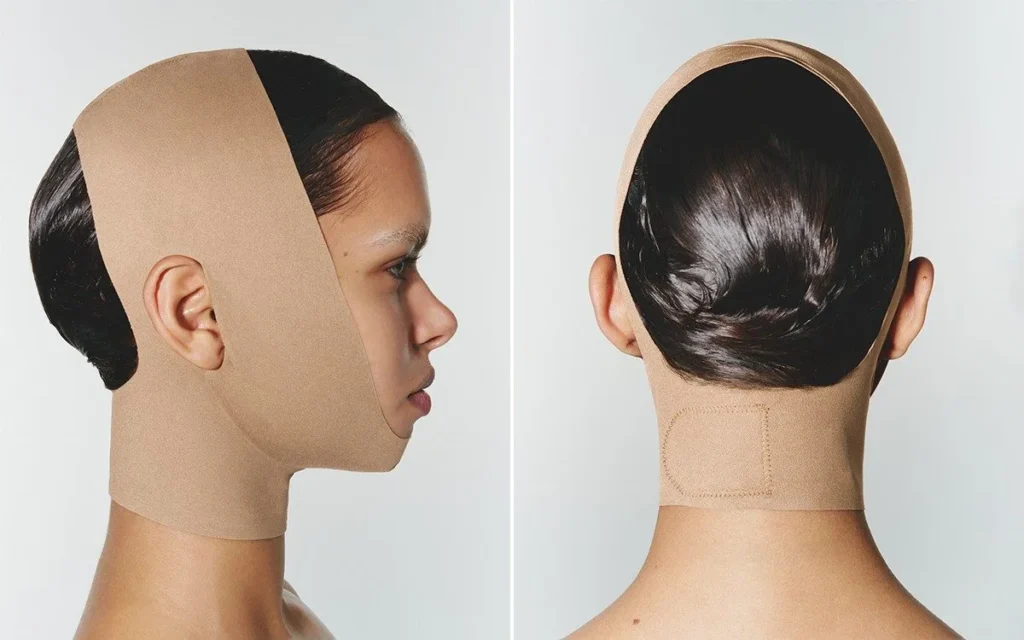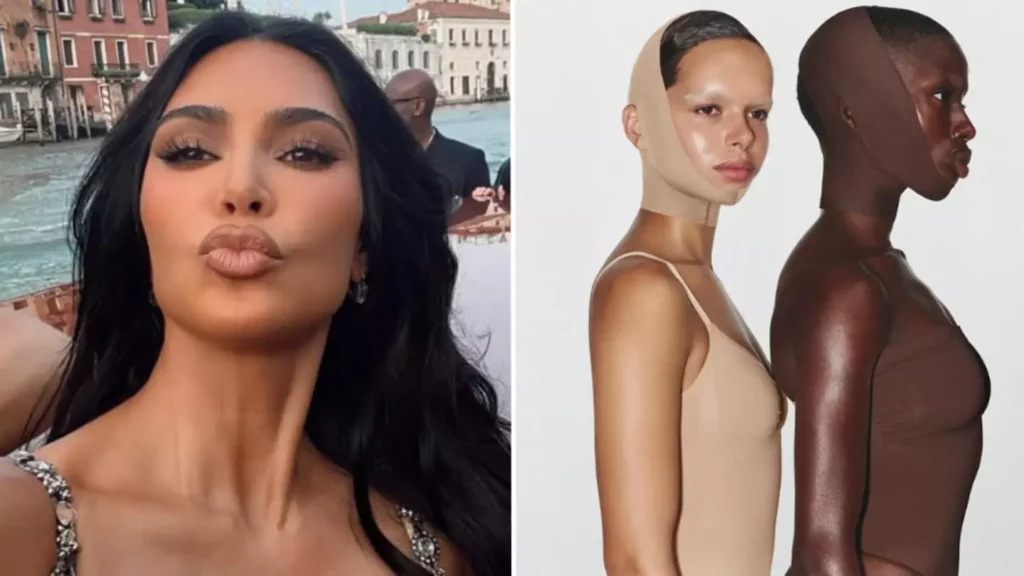How Kim Kardashian Face Shapewear Is Changing Beauty Sleep
In the ever-evolving world of beauty trends, social media users have embraced the motto: the uglier you look before bed, the more beautiful you’ll wake up. On TikTok, the “morning shed” trend now features everything from silicone masks to mouth tape — and even Kim Kardashian face shapewear — all in pursuit of a more sculpted, glowing face.

Now, Kim Kardashian has entered the arena of bedtime beauty rituals with a bold new product: facial shapewear. Through her billion-dollar brand Skims, Kardashian has launched a £52 face wrap marketed as a tool to “sculpt” the jawline and redefine overnight beauty.
Unsurprisingly, the product sold out within 24 hours of release—but not without stirring serious controversy.
Kim Kardashian Face Shapewear: Future of Beauty or Fad?
Shapewear for the body is nothing new, but facial compression wraps marketed for beauty purposes are treading new ground. Skims claims its product offers a “snatched” jawline, and TikTok influencers have jumped on board, praising its effects and pairing it with other trends like gua sha and mouth taping.
But medical experts are skeptical. While some users claim the wrap gives immediate results, professionals warn there’s no long-term science to support these claims.
What the Experts Are Saying
Dr. Anna Andrienko, an aesthetic medicine specialist, says the face wrap might offer temporary de-puffing due to compression and heat retention but won’t provide lasting contouring or firming effects.
“These wraps may reduce fluid retention in the short term,” she explains, “but if worn too tightly or for extended periods, they can cause skin irritation, breakouts, or even circulation issues.”

She also casts doubt on the “collagen yarns” claimed in the product’s marketing. While collagen is essential for firm, youthful skin, Dr. Andrienko says there’s little scientific backing for the idea that collagen-infused fabric can improve skin health.
Is Kim Kardashian Face Shapewear a Sign Beauty Is Becoming Dystopian?
Critics argue that face shapewear—especially when paired with “snatched” aesthetics promoted by influencers—reflects the pressures of performative beauty culture, rather than genuine self-care.
Body image consultant Laura Porter notes that these kinds of products may send harmful messages to young consumers, especially Gen Z and millennial women.
“When brands start marketing compression for natural features like the jawline,” she says, “they imply those features aren’t acceptable unless altered. It reinforces insecurity.”
Influencer Marketing or Manipulative Messaging?
Skims has been heavily promoting the wrap through influencers with huge followings, like Kylie Jenner. Beauty influencers gush about their “sculpted” mornings and call the product a game-changer in their skincare routine. But experts warn that such marketing prioritizes aesthetic trends over evidence-based skincare.

One influencer declared, “My jawline has never been this snatched,” while demonstrating the morning removal of the wrap on TikTok. However, professionals like Porter caution that these “results” are likely temporary and exaggerated.
Selling Insecurity, One Wrap at a Time?
Former model Chloe Thomas believes the wrap undermines body image progress by framing natural features as flaws. “This product sends us backwards,” she says. “It’s making people feel they must fix themselves—even in their sleep.”
Body positive activist Michelle Elman added that comparing one’s face to Kim Kardashian’s is unrealistic. “Kim has professional facialists and cosmetic procedures behind her look, not a £52 wrap,” she notes.
Public Backlash and Viral Memes
Social media reactions have ranged from disbelief to parody. On Skims’ Instagram, some asked if the face wrap was an April Fools’ joke, while others questioned whether the company was trolling its own customers.

Anthony Hopkins even joined the satire, posting a video mocking the product while channeling his iconic Hannibal Lecter character: “Hello Kim, I’m already feeling 10 years younger.”
Mouth Taping and the Morning Shed Movement
Face wraps are just one part of the “morning shed” trend. Another viral ritual includes mouth taping—which claims to improve facial symmetry, sleep quality, and even jaw definition.
Yet medical professionals warn that such practices can be dangerous, especially for people with undiagnosed respiratory conditions or sleep apnea. Porter stresses that these wellness fads often ignore medical advice in favor of influencer-driven aesthetics. Kim Kardashian face shapewear.
Regulation Gap and Marketing Loopholes
Unlike medical-grade treatments, beauty products like face wraps fall into a regulatory gray zone. Brands can make suggestive marketing claims without needing rigorous scientific proof, often using influencer testimonials and buzzwords rather than validated studies.
Porter warns consumers to “look beyond buzzwords” such as “snatched,” “lifted,” and “sculpted overnight,” calling them manipulative rather than informative.
Is It Beauty or Just Branding?
The rise of sleep-time shapewear is emblematic of a culture that monetizes insecurity and prioritizes trends over truth. While many seek self-care and confidence, it’s essential to recognize when marketing veers into dystopian territory.
Kim Kardashian’s face wrap may be fashionable, but the real beauty conversation is about acceptance, science-backed care, and mental well-being—not compression and viral videos. Kim Kardashian face shapewear.




